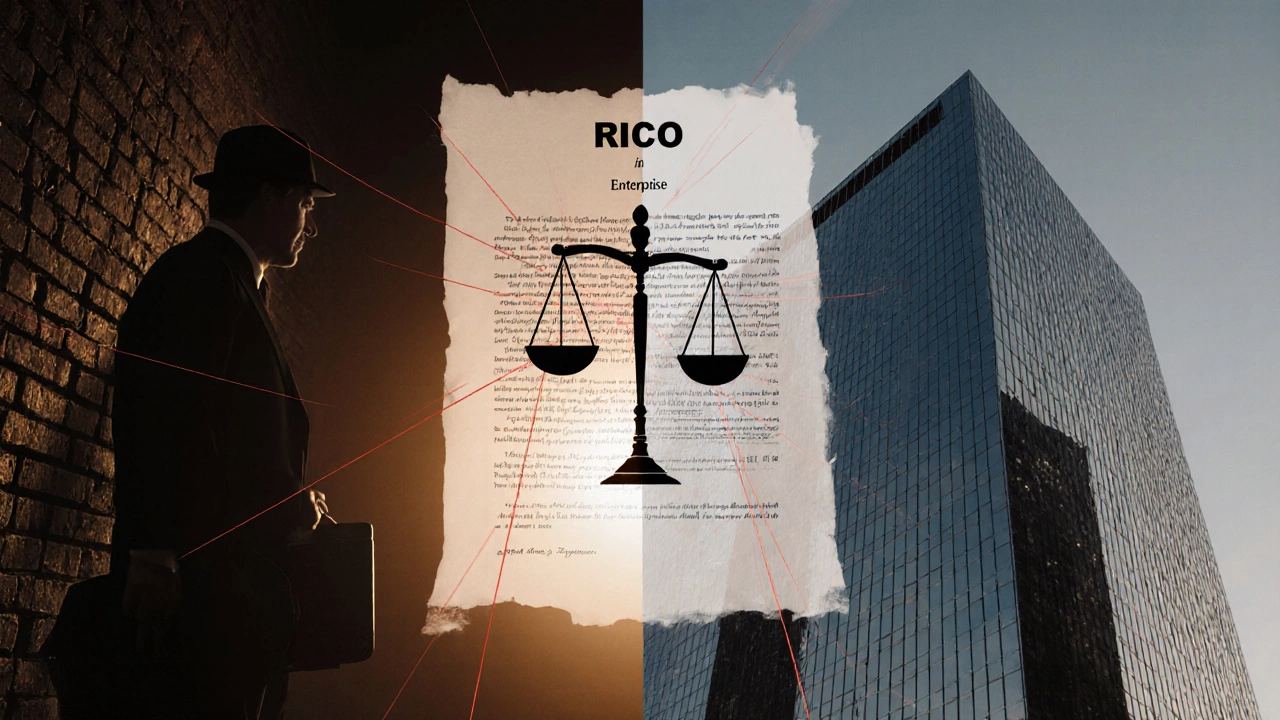RICO Penalties – What They Mean and How They Work
When dealing with RICO penalties, the set of civil and criminal sanctions imposed under the Racketeer Influenced and Corrupt Organizations Act, it helps to first map the main pieces of the puzzle. Also known as the RICO Act, a federal law targeting organized crime and ongoing illegal enterprises, the statute gives prosecutors two broad levers: criminal penalties and civil remedies. Criminal penalties include prison time, mandatory minimums, and hefty fines, while civil penalties can force defendants to pay treble damages and cover attorneys' fees. A third, often overlooked, tool is asset forfeiture – the government's power to seize cash, property, or business interests tied to the illegal activity. Together, these three components form a comprehensive enforcement strategy that can cripple a criminal organization from every angle.
How the Pieces Fit Together
The civil penalties, monetary awards that can be up to three times the actual loss serve two purposes: they punish the offender and deter future misconduct. When a court awards treble damages, the financial hit often exceeds the profit the racketeer made, making the venture unprofitable. On the other side, criminal sanctions, prison sentences and statutory fines imposed after a conviction send a clear message that illegal conduct will be met with incarceration. The law requires the government to prove a "pattern of racketeering activity" – at least two indictable offenses within ten years – before these penalties stick. Asset forfeiture ties into both civil and criminal tracks: if a court finds property was used to facilitate the crime, that asset can be seized, liquidated, and the proceeds funneled into victim restitution or government coffers. This three‑fold approach ensures that even if a defendant avoids jail, the financial consequences remain severe.
Understanding the interplay of these elements equips you to anticipate the real cost of a RICO conviction. Whether you are a legal professional navigating a complex case, a business owner checking compliance, or just curious about how the government tackles organized crime, the range of penalties – from prison walls to emptied bank accounts – shows why the RICO framework is considered one of the toughest enforcement tools in U.S. law. Below, you’ll find articles that break down each aspect in plain language, offer practical tips for defending against RICO claims, and explain how recent court decisions have reshaped the landscape of RICO enforcement.

RICO Charge Explained: What It Is, Penalties & Defenses
Learn what a RICO charge means, its key elements, penalties, real cases, defenses, and civil remedies in a clear, actionable guide.